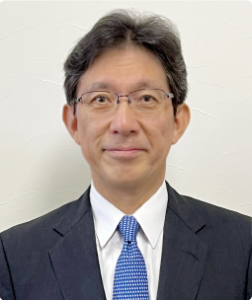Japanese Gastric Cancer Association
Greetings from the President
The Japanese Gastric Cancer Association (JGCA) is an academic organization that aims to promote and develop basic and clinical research on gastric cancer and to improve treatment outcomes. Originally, the Society of Gastric Cancer Research was founded in 1961, and in 1998 the organization was renamed the Japanese Gastric Cancer Association. I am appointed as the fourth president following Prof. Mitsuru Sasako, Prof. Hiroyuki Konno, and Prof. Yasuhiro Kodera.
In the past, gastric cancer was the most common cancer in Japan, and through the accumulation of data and discussions by predecessors, in both research groups and academic societies, Japanese classification of gastric carcinoma was published in 1962 and Japanese gastric cancer treatment guidelines was published in 2001, preceding other cancer types. These publications have been leading the world in the treatment of gastric cancer through continuous revision. The journal, “Gastric Cancer” (jointly published with the International Gastric Cancer Association), published in 1998, has received a high evaluation with Journal Impact Factor of 7.4 (2022). The National Gastric Cancer Registry was started in 1963 with data from surgical cases, and in 2004 endoscopic resection cases were added. The same registration items of the conventional JGCA gastric registry have been implemented to the National Clinical Database gastric cancer registry since 2011.
With 5,000 members, the JGCA encompasses all clinical studies and researches related to gastric cancer, including basic research, pathological diagnosis, endoscopy, surgery, and chemotherapy. The Association continues to pursuit the cutting-edge research in those fields. In the diverse treatment of gastric cancer, we strive to establish the standards for treatment by disseminating the latest evidence in search of optimal treatment. In the midst of the age of information technology, we will continue to explore and develop the most efficient and fruitful Annual Meetings to better meet the needs of the researchers.
Twenty years have passed since the beginning of the 21st century, and gastric cancer treatment has certainly evolved in recent years. The majority of gastric cancers in Japan are diagnosed at an early stage and treated by endoscopic resection, and the indication for treatment is broadening. Surgical approaches have diversified from open surgery to laparoscopic surgery and robotic surgery, and the quality of treatment is being maintained while verifying data on curative efficacy and safety. In drug therapy, new anticancer drugs, molecular targeted drugs, and immune checkpoint inhibitors have improved treatment outcomes and established the ensuing new standards. Various multidisciplinary treatments, combining surgery and drug therapy, are also being tested and are expected the further improvements in treatment outcomes. As the level of treatment advances, we can observe that even in the increase of elders in the population continues in Japan, the rate of H. pylori infection among young people is decreasing and so is the number of gastric cancer patients. Adapting these trends, we would like to initiate the board-certified institution system to maintain the good quality of gastric cancer treatment.
The role of the JGCA is becoming increasingly diverse, and the JGCA is expected to play a major role in providing information to patients, their families, and to the world; and to the younger generation who will lead the next generation of medical care. We would like to receive the opinions of our members and discuss the desirable role of the JGCA in response to the changing of the world. We look forward to your continued support and guidance.

Japanese Gastric Cancer Association
President Yoshihiro Kakeji
Division of Gastrointestinal Surgery, Department of Surgery, Graduate School of Medicine, Kobe University
